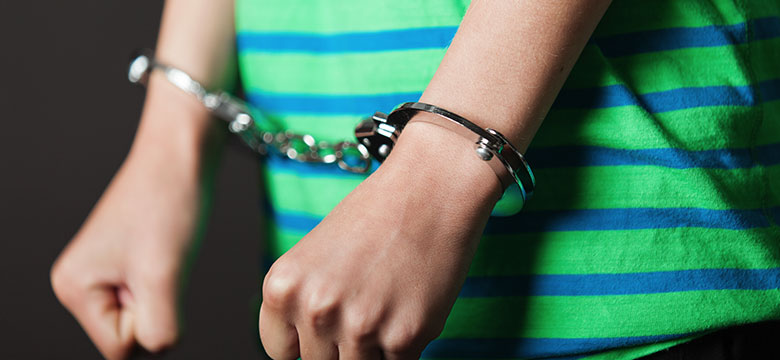
Why You Need a Sarasota Juvenile Felony Lawyer If Your Child Faces Felony Charges
Just like adults, minors may be charged with serious crimes. This includes the possibility of a felony for violence such as fighting. The difference between adults and children is in how their felony charges are processed in the criminal justice system. Offenders who are under the age of 18 typically go through the Florida juvenile justice system, which focuses primarily on rehabilitation as opposed to punishment. If your child has been arrested for a crime, contact a Sarasota juvenile felony lawyer right away. Call Erika Valcarcel, Criminal Defense Lawyer, P.A. at (941) 363-7900 or use our online contact form.
Juveniles May be Charged with a Felony for Fighting
In November 2018, a fight broke out at a youth detention facility in Polk County, Florida. As a result, three of the teenagers involved–all of whom were under the age of 18–were charged with felony battery. Usually, battery is considered as a misdemeanor, but when there is evidence of aggravating circumstances, the offense becomes a felony–and adults and children alike may be charged with this crime.
What Is Felony Battery?
Felony battery is defined at section 784.041 of the Florida Statutes. A prosecutor may charge you with this offense if there is evidence that you intentionally touched or struck another person without their consent, and the physical contact caused great bodily harm, permanent disability, or permanent disfigurement.
If convicted of this third-degree felony, you face up to five years in prison along with fines reaching $5,000.
Felony vs. Aggravated Battery Charges
A similar offense is aggravated battery, which, according to section 784.045, occurs when you commit a battery with a deadly weapon, or against someone whom you knew or should have known was pregnant. Note that a deadly weapon doesn’t mean a knife or a gun. For legal purposes, a deadly weapon is any object capable of killing someone, so any solid or sharp object used to hit someone may potentially be construed as a deadly weapon.
Aggravated battery is a second-degree felony involving a maximum sentence of 15 years in prison and a $10,000 fine.
Absent the aggravating factors enumerated above, battery is treated as a misdemeanor of the first degree, punishable by up to one year in jail and a $1,000 fine. The vast majority of school yard tussles would fall under the misdemeanor category, but it is not uncommon for fights between teenagers to involve aggravating factors that might justify a felony charge.
A Child May be Charged With a Felony Just for Threatening Someone
People often confuse the crime of battery with assault. Unlike battery, which must involve some physical contact between the victim and the assailant, assault may be charged where there is absolutely no physical contact or harm involved. According to section 784.011 of the Florida Statutes, an assault occurs when:
- You use words or actions to threaten violence
- You have the apparent ability to complete the threats
- The threats put the victim in a well-founded state of fear
This offense is a second-degree misdemeanor, punishable by 60 days in jail and a $500 fine. But assault becomes a felony if the assault occurs while you are wielding a deadly weapon, or if you have the intent of committing another felony. Like felony battery, aggravated assault is a felony of the third degree.
If your child is facing assault charges, it’s crucial to contact a Florida juvenile assault attorney who can guide you through the legal process and help protect their future.
When Might a Child’s Case Move from the Juvenile System to the Criminal System?
Children over the age of 14 may be processed as adults, but only if they have previously had multiple run-ins with the law, or they are now being charged with a capital offense such as murder. If a teenager is charged with felony battery after a fight, their case may be moved to adult court under the following circumstances:
- The prosecutor files charges directly in adult criminal court, although this only happens when the child has a such a dangerous history that “the public interest requires it.”
- More commonly, the prosecutor will request a hearing to determine whether the juvenile court should give up its jurisdiction over the case. Before the hearing, the Department of Juvenile justice prepares a report on the child, which may be challenged at the hearing.
Possible Consequences of Having an Adult Criminal Record
For juveniles facing adult felony charges in Florida, the consequences of having an adult criminal record extend far beyond criminal penalties. Here are some of the most significant impacts:
- Many employers conduct background checks, and a felony conviction can prevent young adults from obtaining jobs, even for entry-level positions.
- Felony convictions may affect eligibility for federal student aid, and some schools may deny admission to applicants with criminal records.
- The stigma of having an adult criminal record can impact a juvenile’s self-esteem and their relationships with family, friends, and the community, making it more challenging to move forward.
In addition, a felony record means that any future offenses, even minor ones, may lead to harsher penalties under Florida’s repeat offender laws. For juveniles, this can increase the risk of extended prison time for future convictions, even if the subsequent offenses are less serious.
Was Your Juvenile Charged with a Felony for Fighting? Call Valcarcel Law Today
Once a child has been convicted and sentenced as an adult, they will be treated as an adult for any subsequent charges. For this reason, it’s essential that you retain the assistance of an experienced Sarasota juvenile felony lawyer to keep your child’s case in juvenile court.
If the prosecutor motions to move the case to adult court, your legal team can raise objections and prove that your child is capable and deserving of rehabilitation. For more information about how to defend against juvenile felony charges, call Sarasota Criminal Defense Lawyer today at (941) 363-7900 or use our online contact form for a free consultation.
View All Blogs

